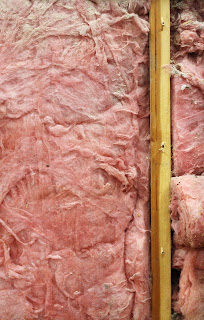Is too much cold air finding its way into your house in the winter? Are you wondering if your home needs better insulation? Want to know if there is anything you can do to lower your energy costs?
Quality insulation is a key factor to having a living space that’s easily maintained at a comfortable temperature. Lacking insulation can lead to soaring utility bills, uneven temperatures throughout the house, overworked A/C units and furnaces, and poor temperature control generally. As important as insulation is, you’ll often find houses are inadequately insulated, especially if they were built in the 1980s or earlier.
What do you need to know about insulation to make sure your home is protected and efficient?
As experts in heating Ann Arbor homes, we’ve put together a list of tips and facts about insulation to help make you more comfortable at home:
- Insulation can be made from fiber glass, rock wool, rigid foam boards, or cellulose.
- Depending on where it’s applied, insulation can be installed in batts, rolls, and sheets, as a spray, or as foam boards.
- Insulation quality is measured in R-values, which take into account material and thickness of the insulation product.
- Recommendations for R-values are made by the U.S. Department of Energy and differ across the country.
- Not only does insulation prevent air leaking in and out of your house, it also helps keep your home quieter.
- You can easily increase the insulation of your house by adding rolls to the floor of your unfinished attic.
- Adding insulation to finished walls can be expensive, but should be considered if your home is often uncomfortable, unevenly heated or cooled, or sees very high utility bills.
- Crawl-spaces can sometimes be insulated, but don’t need to be if the floor above is already insulated.
- If your home is drafty, check for air leaks around windows, doors, light fixtures, outlets and switches, utility penetrations, ducts, and etc.
- You can also apply insulation to your hot water pipes to avoid heat loss and potentially increase water temperature 2-4 degrees F at the tap.
Insulation may live mostly in the dark inside the walls of your home, but it doesn’t have to be mysterious! With this helpful guide, you may now feel more confident about the insulation in your home, or know how to tackle a problem if you have one.
If you want to know more about insulation or heating your Ann Arbor home, give us a call. We are ready to help with any heating and cooling projects you have in your home.









